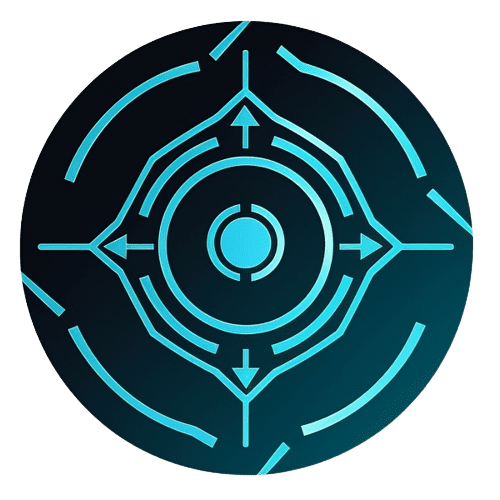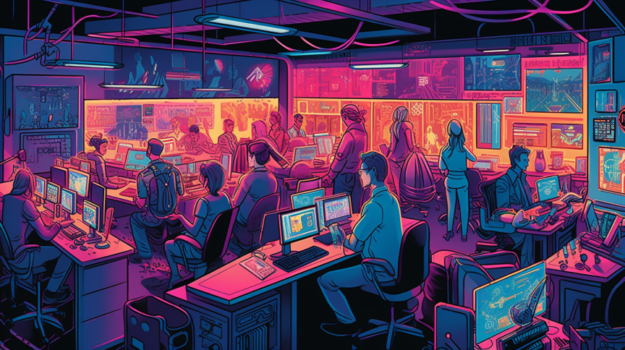Introduction to Information Security Job Interviews

In the ever-evolving landscape of technology, the field of information security holds immense importance. As organizations strive to protect their data and infrastructure, the demand for skilled professionals in this domain continues to rise. However, landing a job in information security requires more than just technical expertise; it demands a successful job interview.
Understanding the Importance of a Job Interview in the Information Security Field
A job interview serves as a critical step in the hiring process for information security professionals. It provides an opportunity for candidates to showcase their knowledge, skills, and experiences, while allowing employers to assess their suitability for the role. Understanding the significance of a job interview will help you approach it with a strategic mindset.
Determining the Goals of a Successful Information Security Job Interview
To achieve success in an information security job interview, it is vital to identify the goals that you aim to accomplish. These goals may include impressing the interviewer with your technical prowess, demonstrating problem-solving abilities, and showcasing strong communication and teamwork skills. Prioritizing these objectives will help you navigate the interview with confidence.
Preparing for the Interview
Researching the Company and the Position
Before stepping foot into the interview room, thorough research on the company and the position is essential. Familiarize yourself with the organization’s mission, values, and recent achievements. Additionally, delve into the specific role you are applying for, understanding its responsibilities and the challenges it entails.
The Significance of Understanding the Company Culture
To truly stand out during the interview, it is crucial to understand the company culture. Company culture encompasses the shared values, norms, and attitudes that shape the work environment. Pay attention to elements such as dress code, communication style, and collaboration methods. Aligning your behavior and responses with the company culture will increase your chances of success.
Analyzing the Job Description and Requirements
Thoroughly analyzing the job description and requirements will enable you to tailor your responses accordingly. Identify the key skills, experience, and certifications sought by the employer. This analysis will help you emphasize your strengths and address any potential gaps in your qualifications.
Reviewing Important Information Security Concepts
Revisiting fundamental information security concepts is crucial to showcasing your expertise in the field. Refresh your knowledge of encryption, intrusion detection systems, network security protocols, and other key areas. Demonstrating fluency in these concepts will boost your credibility and make you a more competitive candidate.
Refreshing Knowledge on Cybersecurity Fundamentals
Staying up to date with the latest advancements and trends in the cybersecurity landscape is vital. Familiarize yourself with emerging threats, mitigation strategies, and industry best practices. This knowledge will demonstrate your commitment to staying current and adapting to the evolving nature of information security.
Practicing Common Interview Questions
Comprehensive preparation involves practicing common interview questions specific to information security roles. Anticipate questions about your experience with vulnerability assessments, incident response protocols, risk management strategies, and compliance frameworks. Crafting thoughtful and concise responses will showcase your ability to handle real-world scenarios.
Understanding Behavioral Questions and How to Respond Effectively
Behavioral questions provide insight into your past experiences and behaviors. Employers may ask situational or scenario-based questions to assess your problem-solving abilities. For instance, “Tell us about a time when you faced a significant security breach. How did you handle it?” Respond by framing the situation, your actions, and the positive outcome using the STAR method (Situation, Task, Action, Result).
Preparing Concise and Impactful Answers to Technical Questions
Technical questions in an information security interview aim to gauge your technical proficiency. Prepare concise and impactful answers that highlight your knowledge of intrusion detection, firewall configurations, access control mechanisms, and secure coding practices. Articulate your technical expertise in a manner that is understandable for both technical and non-technical interviewers.
Developing a Strong Personal Introduction and Elevator Pitch
Crafting a compelling personal introduction and elevator pitch will set the tone for the interview. Introduce yourself confidently, briefly summarizing your professional background and key qualifications. Make sure to highlight your unique selling points, such as relevant certifications, industry recognitions, or notable projects.
Creating a Memorable Opening Statement
An attention-grabbing opening statement can create a lasting impression on the interviewer. Tailor your opening statement to capture the essence of your skills, experiences, and passion for information security. Start with an interesting fact or an anecdote that showcases your expertise and sets you apart from other applicants.
Highlighting Relevant Skills and Experiences
During the interview, it is essential to highlight skills and experiences directly related to the information security role. Emphasize your proficiency in threat intelligence analysis, penetration testing, security architecture design, or incident response management. Providing concrete examples of how you leveraged these skills will make your qualifications more tangible.
Showcasing Key Skills and Experiences

In an information security job interview, showcasing key skills and experiences relevant to the role is paramount.
Highlighting Technical Expertise and Certifications
Demonstrate your technical expertise by highlighting relevant certifications. Certifications such as Certified Information Systems Security Professional (CISSP), Certified Ethical Hacker (CEH), and Certified Information Security Manager (CISM) are highly regarded in the industry. Mentioning these certifications will help instill confidence in your ability to handle critical security challenges.
Identifying Relevant Certifications for Information Security Roles
Identifying certifications specific to the information security roles you are applying for will boost your credibility. Certificates such as Offensive Security Certified Professional (OSCP) for ethical hacking or the Certified Cloud Security Professional (CCSP) for cloud security are tailored to specific domains within information security. Obtaining these certifications showcases your dedication and specialization.
Demonstrating Practical Experience and Projects
Illustrate your practical experience and involvement in information security projects. Discuss specific instances where you successfully implemented security measures, resolved vulnerabilities, or led incident response teams. Highlighting your hands-on experience will provide evidence of your ability to execute security strategies effectively.
Demonstrating Problem-Solving and Critical Thinking Abilities
Problem-solving and critical thinking are key skills sought after in information security professionals. During the interview, outline how you approached complex security challenges and arrived at effective solutions. Discuss your ability to assess risks, triage threats, and implement mitigation strategies. This will demonstrate your analytical mindset and sound decision-making capabilities.
Breaking Down Complex Scenarios and Providing Solutions
As an information security professional, your role often involves analyzing complex scenarios. During the interview, showcase your ability to break down intricate security challenges into manageable components. Present practical solutions that efficiently address the core issues. This showcases your ability to handle complex situations with ease.
Illustrating Real-World Examples of Problem-Solving in Information Security
Providing real-world examples of problem-solving in information security will authenticate your claims. Describe instances where you detected and mitigated security breaches, devised innovative security controls, or successfully defended against sophisticated attacks. Sharing concrete examples will reinforce your credibility and leave a lasting impression.
Showcasing Communication and Teamwork Skills
Effective communication and collaboration are crucial skills in information security roles. Highlight instances where you effectively communicated security recommendations to non-technical stakeholders. Discuss experiences working collaboratively with cross-functional teams to implement security strategies. Emphasize your ability to bridge the gap between technical and non-technical personnel.
Emphasizing Effective Communication Practices in Security Roles
Effective communication goes beyond technical jargon. Showcase your ability to communicate complex security concepts in a clear and concise manner. Highlight instances where you translated technical details into layman’s terms for stakeholders and senior leadership. This will underscore your capability to convey critical security information efficiently.
Illustrating Experiences Working Collaboratively with Teams
Highlight collaborative experiences, particularly those that resulted in successful security outcomes. Discuss instances where you collaborated with IT teams, developers, and business units to implement security controls. Illustrate your role in fostering a culture of security awareness and teamwork, showcasing your ability to work effectively with diverse stakeholders.
Presenting a Professional Image

To make a lasting impression during an information security job interview, presenting a professional image is key.
Dressing Appropriately for an Information Security Interview
Understanding the dress code expectations in the information security industry is crucial. While it varies depending on the organization and the position, it is generally advisable to err on the side of professionalism. Opt for formal attire, such as a suit or business attire, unless the company explicitly states otherwise.
Understanding the Dress Code Expectations in the Industry
Researching the industry’s dress code expectations helps you align your appearance with its norms. Information security often requires a balance between technical competence and a professional image. Pay attention to whether the industry leans towards traditional corporate attire or a more relaxed dress code. Choose your outfit accordingly to ensure a polished appearance.
Choosing Professional Attire that Aligns with the Company Culture
While adhering to a professional dress code, it is also essential to align your attire with the company culture. Consider the company’s values, atmosphere, and image. If the company has a more casual environment, you may dress slightly less formally while still maintaining a professional appearance. Ensure that your clothing reflects the image you wish to portray.
Showcasing Proper Body Language and Demeanor
Mastering proper body language and maintaining a professional demeanor will enhance your overall image during the interview. Maintain good posture, maintaining eye contact, and conveying confidence through non-verbal cues such as a firm handshake. A warm smile and a friendly yet poised approach will convey professionalism and foster a positive connection with the interviewer.
Maintaining Eye Contact and a Confident Posture
Maintaining eye contact throughout the interview demonstrates confidence and engagement. It shows the interviewer that you are actively listening and genuinely interested in the conversation. Coupled with a confident posture, this conveys professionalism and ensures that your non-verbal communication aligns with your verbal responses.
Projecting an Enthusiastic and Professional Demeanor
Presenting an enthusiastic and professional demeanor is paramount in an information security job interview. Showcase your passion for the subject matter and your commitment to excellence. Engage in the conversation, ask thoughtful questions, and express genuine interest in the organization and the opportunity. This will leave a positive and lasting impression with the interviewer.
Preparing Necessary Documents and Materials
Organizing the necessary documents and materials ahead of time demonstrates your preparedness and attention to detail.
Organizing a Portfolio of Past Security Work
Compile a portfolio showcasing your past security work, including any noteworthy projects, research papers, or presentations. This provides tangible evidence of your contributions and expertise. Ensure that your portfolio is well-organized, easy to navigate, and presents your work professionally.
Bringing Copies of Resumes, Reference Letters, and Other Supporting Documents
Print multiple copies of your resume, reference letters, and any other supporting documents relevant to the interview. This allows you to provide physical copies to the interviewer and ensures they have all the necessary information at their fingertips. Organize these documents neatly in a professional folder or portfolio, further reflecting your attention to detail.
Doing the Research: Interviewing the Interviewer

Interviewing the interviewer is an essential component of a successful information security job interview.
Understanding Why Interviewing the Interviewer is Crucial
Interviewing the interviewer allows you to gain insights that will help you determine whether the organization is the right fit for you. By asking thoughtful questions, you gain a deeper understanding of the company’s values, team dynamics, and expectations. This information will help you assess whether the organization aligns with your professional goals.
Gaining Insights into Company Values and Team Dynamics
Ask questions that allow you to gauge how the organization upholds its core values and how the information security team operates. Inquire about the team’s collaboration practices, their relationship with other departments, and the support they receive from management. These insights will help you evaluate whether the team’s dynamics align with your working style.
Assessing Personal Fit within the Organization
By conducting a brief interview of your own, you can assess whether you would be a good fit for the organization. Ask questions about the company culture, growth opportunities, and support for professional development. Reflect on your compatibility with the organization’s values and the potential for your continued growth and success within their environment.
Preparing Insightful Questions to Ask the Interviewer
Prepare a set of well-thought-out questions to ask the interviewer. Tailor these questions to demonstrate your genuine interest in the organization and the role. Inquire about their approach to information security, the strategic direction of the department, or any current or upcoming challenges they face. Thoughtful questions will showcase your curiosity and eagerness to contribute.
Inquiring About the Company’s Approach to Information Security
Asking about the organization’s approach to information security will reveal their commitment and level of investment in protecting their assets. Inquire about their security frameworks, incident response capabilities, and employee training programs. This will demonstrate your understanding of the importance of a holistic and proactive approach to information security.
Discussing Growth Opportunities and Further Development
Demonstrate your commitment to professional growth by asking about growth opportunities within the organization. Inquire about career paths, mentorship programs, or available training resources. This displays your long-term commitment to developing your skills and contributes to the organization’s success.
Nailing the Interview Day

Approaching the interview day with preparedness and confidence will greatly enhance your chances of success. Here are some essential tips for nailing the interview day:
Pre-Interview Preparations
Make necessary pre-interview preparations to ensure a smooth experience on the day. Plan to arrive early, allowing time for potential technical difficulties or unforeseen circumstances. Familiarize yourself with the interview location and any technical tools or platforms that may be utilized during the interview. Engage in calming activities, such as deep breathing exercises or meditation, to reduce nervousness.
Arriving Early and Planning for Potential Technical Difficulties
Arriving early demonstrates punctuality and allows you to compose yourself before the interview. In case of technical difficulties, such as internet connectivity issues or software glitches, ensure you have a backup plan. Familiarize yourself with alternative means of communication or have a phone ready for audio calls if needed.
Engaging in Calming Activities to Reduce Nervousness
Nerves are natural before an interview, but engaging in calming activities can help alleviate anxiety. Take a few minutes to engage in deep breathing exercises, visualization, or positive affirmations. Remind yourself of your qualifications, accomplishments, and the preparation you have undertaken. Calming activities can help you approach the interview with a clear, focused, and confident mindset.
Building Rapport with the Interviewer
Building a rapport with the interviewer is essential for a successful interview. Demonstrate active listening skills by paying close attention to their questions and comments. Maintain a friendly and engaged demeanor throughout the conversation. Tailor your responses to align with the interviewer’s communication style, whether they prefer a more conversational approach or a structured format.
Demonstrating Active Listening Skills and Genuine Interest
Actively listen to the interviewer to ensure you understand their questions fully. Take a brief moment to gather your thoughts before responding thoughtfully. Show genuine interest in their perspectives, experiences, and insights. This will foster a connection and convey your ability to collaborate effectively.
Tailoring Responses to Align with the Interviewer’s Communication Style
Adapt your communication style to resonate with the interviewer. If they prefer technical details, provide them. If they prefer a broader overview, adjust your responses accordingly. Pay attention to the interviewer’s body language and verbal cues to gauge their level of interest and understanding. Tailoring your responses will enhance their engagement and increase the likelihood of a positive assessment.
Responding Confidently to Various Interview Formats
Information security interviews often comprise different formats, including traditional, behavioral, and technical questions. Confidence is crucial regardless of the format. Approach traditional questions with well-structured responses, highlighting your qualifications and experiences. When answering behavioral questions, employ the STAR method to convey your problem-solving abilities effectively
Whether you’re facing traditional questions or scenario-based inquiries, remember to:
- Remain calm and composed
- Listen attentively to the interviewer
- Take a moment to think before answering
- Provide concise and well-thought-out responses
Navigating traditional, behavioral, and technical interview questions
In an information security job interview, you may encounter a mix of traditional, behavioral, and technical questions. It’s important to prepare for all three types to demonstrate your knowledge and suitability for the role. Consider the following tips:
- For traditional questions, focus on highlighting your accomplishments, relevant skills, and experience.
- Behavioral questions require you to draw on your past experiences to showcase your problem-solving abilities and how you handle challenges.
- Technical questions delve into your knowledge of information security concepts, tools, and best practices. Prepare by revisiting key technical areas and remain confident in explaining complex topics.
Utilizing the STAR method to structure responses effectively
When responding to behavioral interview questions, the STAR method can be a valuable tool to ensure your answers are structured and impactful. Follow these steps to effectively utilize the STAR method:
- Situation: Describe the context and background of the scenario.
- Task: Explain the specific task or challenge you faced in that situation.
- Action: Detail the actions you took to address the task or challenge.
- Result: Share the outcome or results achieved as a result of your actions.
By utilizing the STAR method, you will provide tangible examples that showcase your skills and experiences in a clear and concise manner.
Post-Interview Actions

After the interview, your job isn’t done just yet. It’s important to follow up and take appropriate actions to leave a positive and lasting impression on the interviewers. Here are some essential post-interview actions to consider:
Sending a personalized thank-you note
Within 24 hours of the interview, take the time to send a personalized thank-you note to each interviewer. Expressing gratitude for the opportunity and reiterating your interest in the position can set you apart from other candidates. Remember to be specific and mention key points discussed during the interview to demonstrate your attentiveness.
Expressing gratitude and reiterating interest in the position
During the interview, make it a point to express your genuine interest in the position. Post-interview, reiterate your enthusiasm and interest in the role in any follow-up correspondence. By expressing your gratitude and enthusiasm, you emphasize your commitment and dedication to the opportunity.
Reflecting on key points discussed during the interview
Take some time to reflect on the key points discussed during the interview. Consider your responses and evaluate how well you addressed each question and showcased your skills. Reflecting on your performance can help you identify areas for improvement and provide insights for future interviews.
Following up and staying engaged
Following up after the interview is crucial to staying engaged in the hiring process. Send a follow-up email to the interviewer to express your continued interest and inquire about the timeline for the next steps. This demonstrates your proactive approach and eagerness to move forward in the process.
Checking in for updates on the hiring process
As time progresses, don’t hesitate to check in with the hiring manager for updates on the hiring process. This shows your genuine interest and enthusiasm for the opportunity. However, be mindful not to appear overly pushy or impatient.
Continuing professional development and networking activities
While waiting for a response, it’s essential to continue your professional development and networking activities. Attend industry events, join relevant online forums, and actively engage with others in the information security community. Not only does this demonstrate your commitment to your field, but it also expands your professional network, which can lead to future opportunities.
Networking and Maintaining a Strong Online Professional Presence

In today’s digital world, having a strong online professional presence is as important as your in-person demeanor. This is especially true for fields like Information Security, where networking can open doors to opportunities and showcase your passion for the field.
Websites like LinkedIn serve as your online resume, displaying your skills, experience, certifications, and even recommendations from colleagues or superiors. Engaging with industry-specific groups, participating in relevant discussions, and sharing insightful content on these platforms can establish your thought leadership in the field.
Remember, employers often look up potential candidates online as part of their vetting process. A well-curated online presence can complement your interview performance, demonstrating your ongoing commitment to your profession.
Summary – Conquering the Information Security Job Interview

So, in summary, preparing for an information security job interview requires careful planning and confident execution. By following the tips outlined in this article, such as responding confidently to interview formats, utilizing the STAR method, and taking appropriate post-interview actions, you can increase your chances of success. Remember, preparation, skills demonstration, and professionalism are key to conquering the information security job interview.
FAQs: Job Interviews in Information Security

Here are some frequently asked questions about job interviews in the field of information security:
Q1. What are the essential technical skills required for an information security job?
- Proficiency in network security
- Knowledge of encryption algorithms
- Familiarity with penetration testing tools
- Understanding of risk assessment methodologies
Q2. How can I stand out from other candidates during an information security interview?
- Showcase your practical experience through relevant examples
- Demonstrate a deep understanding of the organization’s security needs
- Highlight any certifications or additional training you have completed
Q3. Is it necessary to have certifications in information security to secure a job?
- While certifications can enhance your credibility and showcase your expertise, they are not always mandatory. Practical experience and a strong understanding of information security concepts can also be valued by employers.
Q4. What are some common mistakes to avoid during an information security job interview?
- Overselling your abilities or exaggerating your experience
- Failing to research the company and its specific security needs
- Neglecting to ask thoughtful questions about the role or company
Q5. How should I handle questions about past experiences with ethical hacking?
- Be honest and transparent about your experiences with ethical hacking, emphasizing ethical practices and adherence to legal boundaries.
- Highlight any positive outcomes or lessons learned from your experiences.
Remember, each interview is unique, and it’s important to tailor your responses to the specific situation and company. Good luck with your information security job interviews!





